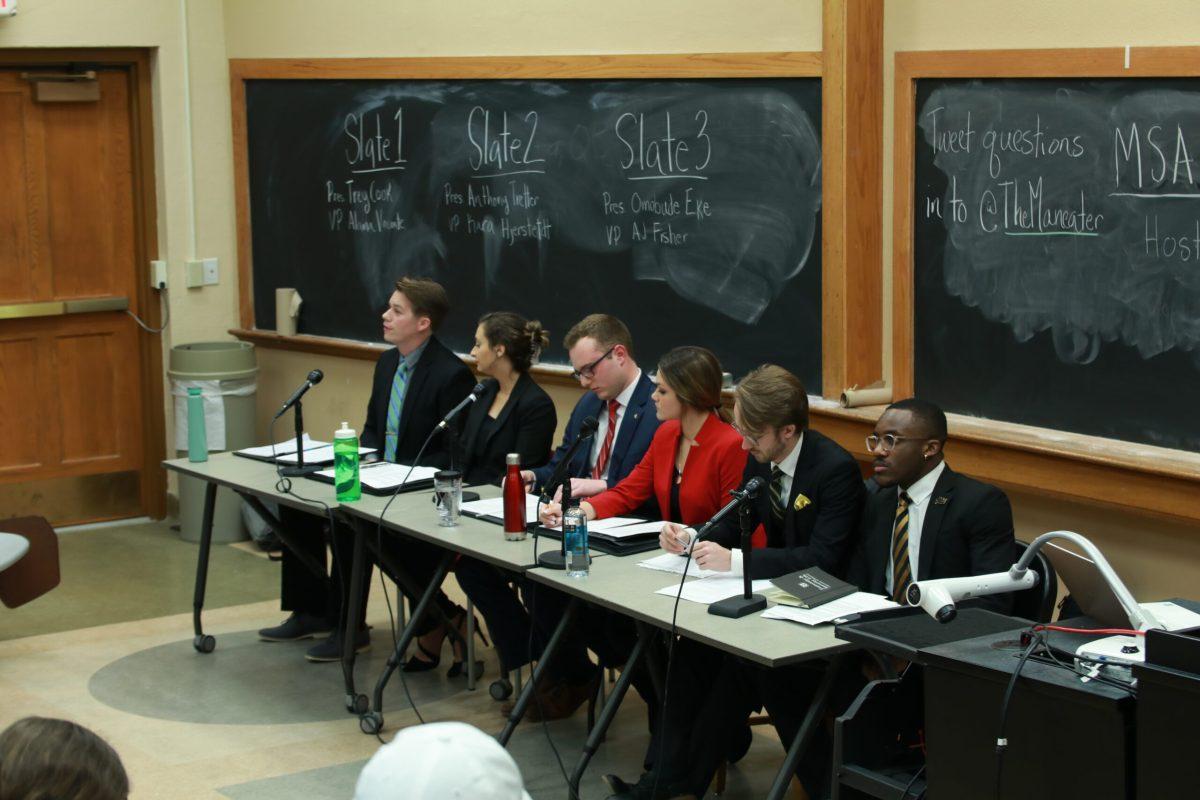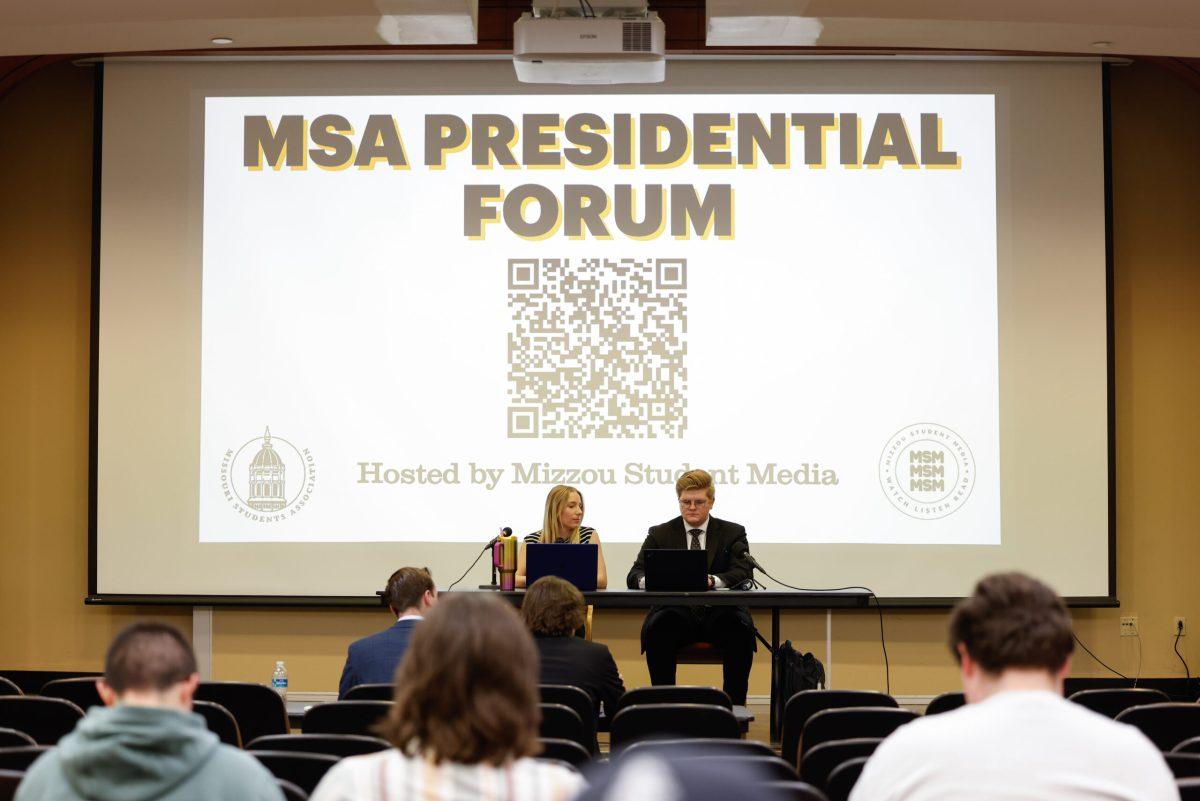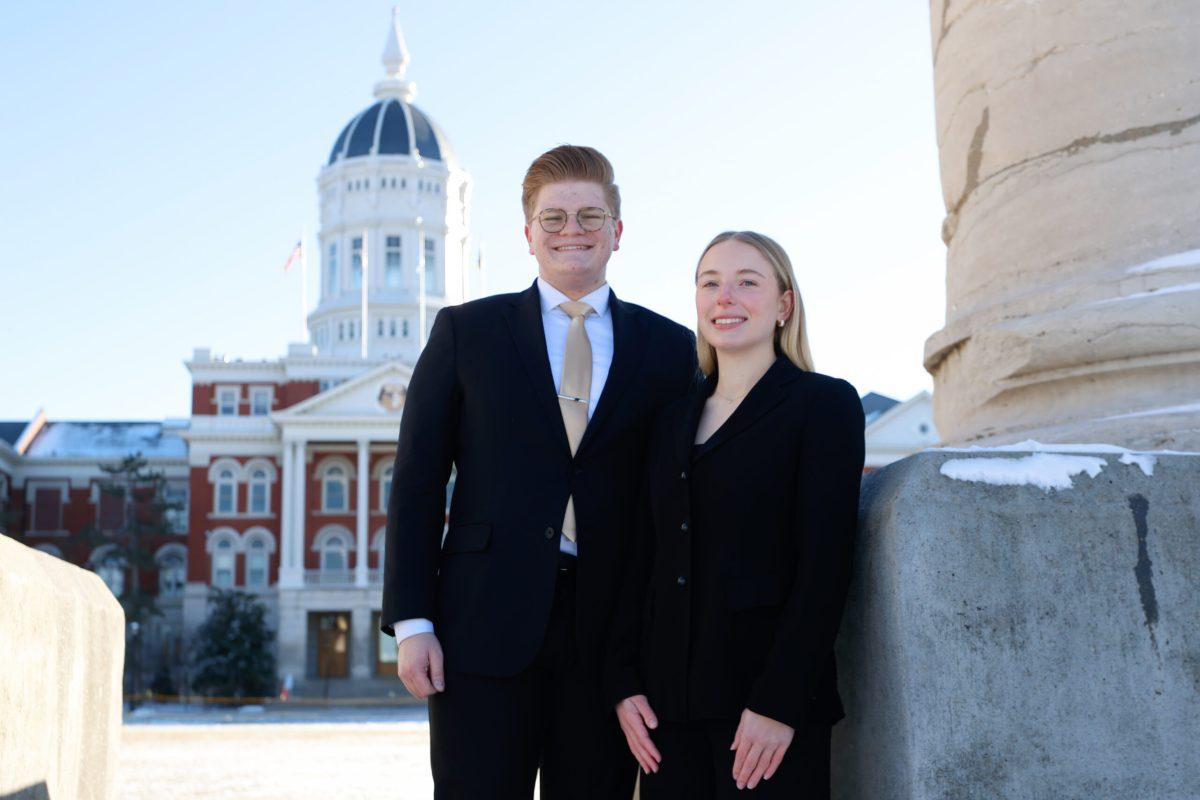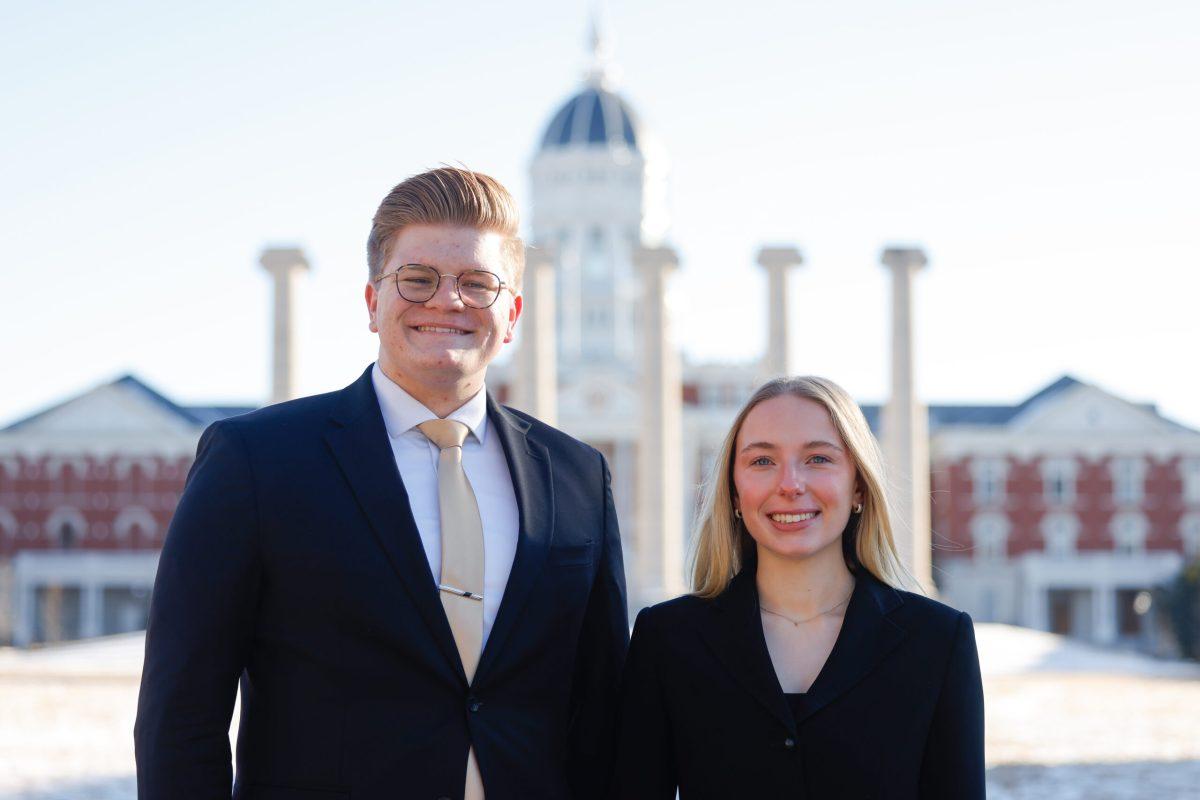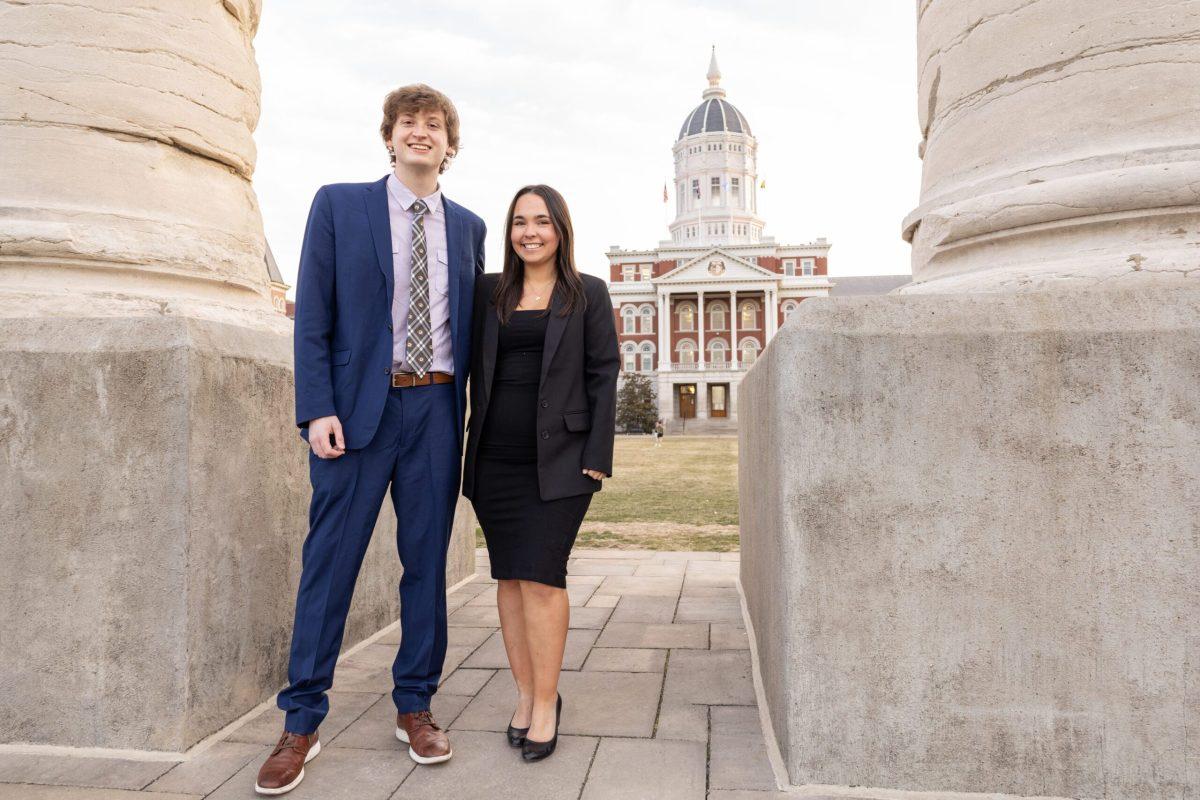The three slates for the Missouri Students Association’s presidential election participated in a debate Thursday night, answering questions that covered a wide range of topics, including student mental health, inclusivity and transparency.
The Cook slate has Trey Cook running for president and Alaina Vacante for vice president. The Tretter slate has Anthony Tretter for president and Kara Hjerstedt for vice president. The Eke slate has Omobude Eke for president and AJ Fisher for vice president.
The debate, held in Mumford Hall and moderated by The Maneater, also fielded questions from Twitter and was covered via [two](https://twitter.com/joyllybelly/status/1230641505972322306) [live-tweet](https://twitter.com/CDanborn/status/1230639702190899200) threads from Maneater reporters.
The slate’s quoted responses placed in this story were determined by the order in which they responded to each individual question during the debate.
###Student mental health###
Student mental health was a major talking point for all slates. For context, the student body has voiced their concerns about MU’s current counseling system. The Maneater published a [Letter to the Editor](https://www.themaneater.com/stories/campus/mu-counseling-center-policy-is-dangerous,-misguided-), a third-party opinion piece, that spoke about the shortcomings of the system. The slates were asked about how they plan on improving mental health institutions on campus.
Cook said that students need to be properly informed about what the counseling system provides for students.
“I think it is of the utmost importance that students at Mizzou know these resources, know where to find them, know the ways they can access them, and I do believe that is an issue,” Vacante said. “There are many [students] that don’t even know where the counseling center even is.”
Hjerstedt said many students aren’t lucky enough to afford outside counseling services, and Tretter said since Missouri ranks bottom five in funding from the state legislature, that more work with the university and state legislature is necessary to address the issue.
“To treat counseling visits like a punch card is not in line with this university’s values, and it’s not helping,” Tretter said. “Four suicides is four too many, and again that’s why we’ve included it as one of our four most important platform ideas.”
Fisher said that community is one of the four main tenets for the Eke slate, and that mental health is the first thing that came to their minds when thinking of community. He suggested an entire restructuring of the counseling system.
“We need more counselors,” Fisher said. “We need more accessible counseling. We need shorter wait times. Students who are reaching out for mental health take so long to do it because they’re struggling. When they finally do, they need help now. They don’t need help in a month. They don’t need help in 10 weeks.”
###Diversity and inclusion###
Slates were also asked about MU’s continuing problems with diversity, inclusivity and how MU has often failed to understand and represent inclusivity on campus, as evidenced most recently from the Mizzou Athletics tweet from November 2019.
Hjerstedt said that to address diversity and inclusivity, they want to focus on creating equity, which includes special education and mental health advocacy according to her.
“I think in terms of the Mizzou Athletics tweet in specific, hosting a town hall was really, really tough,” Tretter said. “There were a lot of people who had valid concerns about the contents of that tweet. The one positive I think I took from it was that students demanded action items … when defining our slate and our platform points, all four of them have actionable steps and we’re looking to implement them.”
Eke emphasized the need for education and awareness about privilege, recognizing privilege and motivating students to understand their privilege.
“To begin, I feel as if the problem we’re facing here stems from not being represented as minorities on campus,” Eke said. “In order to combat these inadequacies that we face, it is imperative that we recognize the privilege each group faces. If you are able to recognize your privilege, you are able to understand what things are okay to do and what things are okay not to do.”
The Cook slate specifically said that they want to directly bring the idea of inclusion into all of their future proposed legislation and initiatives.
“I truly feel as though this [issue] is of the utmost importance and that is why we have inclusion as one of our values, one of our platform points,” Vacante said. “We want to have inclusion be a part of every decision that we make, every bill that we help pass, because it is not something that can ever be overlooked in any way and in any fashion.“
###Transparency###
MSA’s transparency and outreach came into question during a November 2019 MSA town hall, where students said how MSA hasn’t adequately reached out to minority students and minority student government. The slates were asked how they plan on improving MSA’s current efforts in that area.
Fisher said MSA hasn’t been truly representative of its own members and their ideas and initiatives, saying that he hasn’t seen anyone propose legislation in the senate that’s been shown to a large number of students.
“So I know a big thing that we want to try to do is make it to where the students have more of a voice and that it’s not just senators coming to the Tuesday meetings writing legislation they want,” Fisher said.
Cook said that while the MSA has articles of cooperation for student organizations, that puts the onus of inclusivity on those organizations, not the MSA.
“When we are in these positions of leadership, we will go to students,” Cook said. “We will take time out of our day and go to work with students in different communities. We will put ourselves in spaces we aren’t always comfortable in, because if you don’t get comfortable being uncomfortable, you’re not getting any better.”
To increase transparency, Tretter said that information about where MSA funds go isn’t easily accessible and most people don’t know about the legislation MSA passes.
“We would like to have a system in place where we can send passed legislation to other groups around campus and gather their feedback before making a decision as an executive board whether or not to enact it,” Tretter said.
There were more questions asked, so visit the live [twitter](https://twitter.com/joyllybelly/status/1230641505972322306) [threads](https://twitter.com/CDanborn/status/1230639702190899200) for a broader look at the debate. The election will run from March 2 to 4, and students can vote online at [vote.missouri.edu](https://vote.missouri.edu).
_Edited by Alex Fulton | [email protected]_


